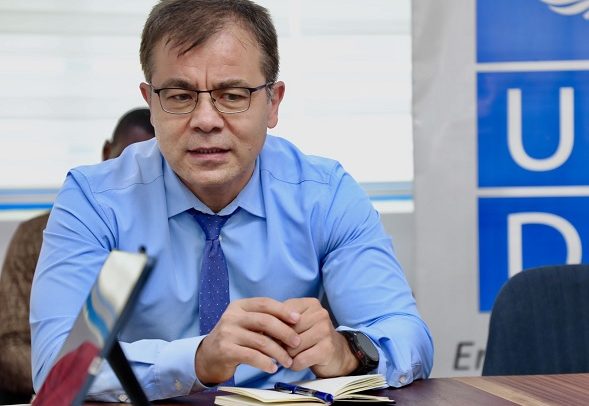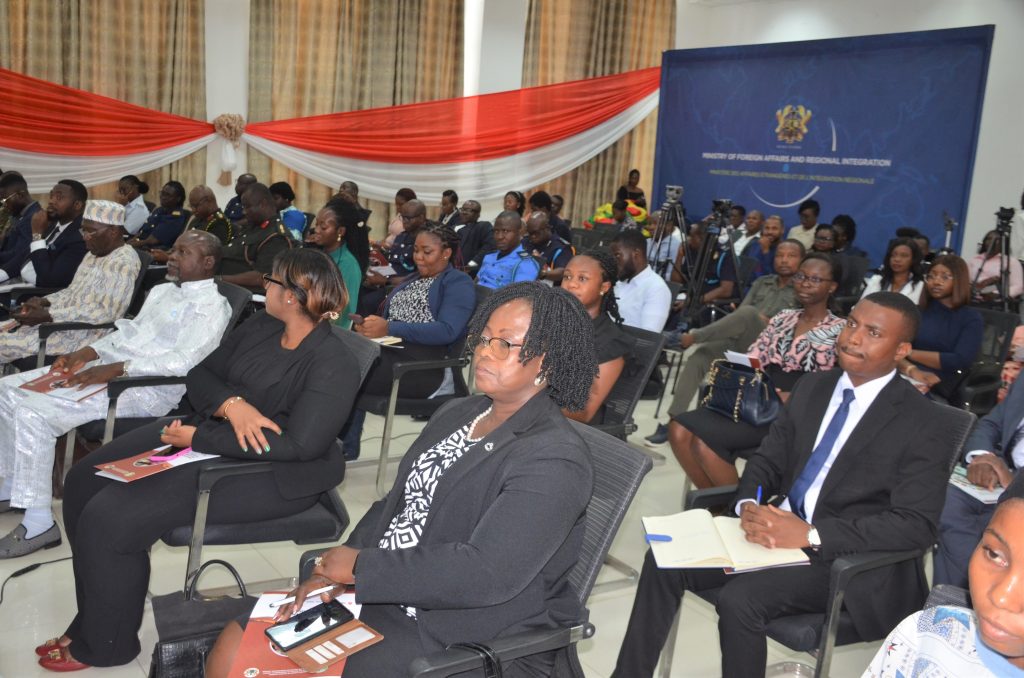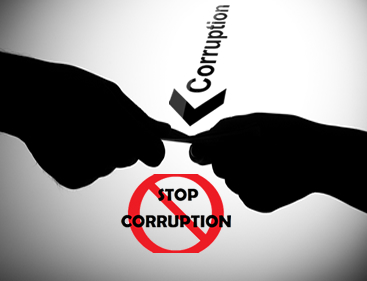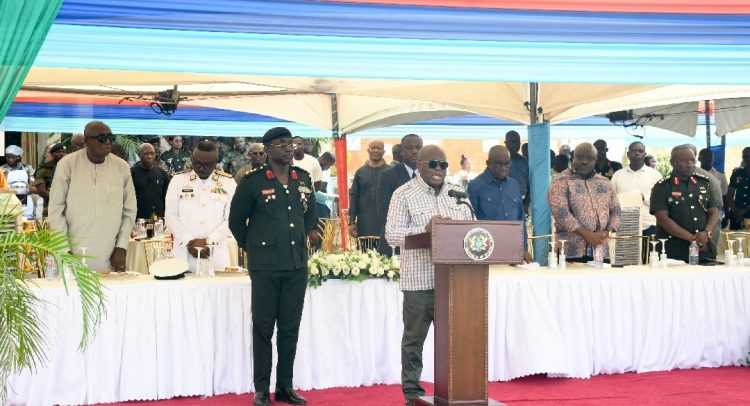
An Overview of Ghana’s 2024 Elections
After independence on the March 6, 1957; the Ghana has had successful elections with no major civil war. Proclaimed as the Gate way to Africa, the country prides itself for the stable democracy which other African states seek to emulate. Although Ghana has experienced some form of armed violence regarding unconstitutional take over post-independence; it has been relatively stable with successive governments taking over the realm of governance. Ghana’s elections have always generated a lot of interest both internationally and nationally. On December 7 this year, Ghana will hold its 9th election since its journey to multiparty democracy in 1992. This year’s election is a very pertinent one in the Ghanaian calendar. We have had what has been largely described by international and national observers as a peaceful, transparent, free and fair elections since 1992, 1996, 2000, 2004, 2008, 2012, 2016, and 2020. Notwithstanding that past elections have been described somewhat peaceful, the last elections held in 2020 came with it associated violence with that claimed eight lives and injured several others. The objective of this article is to highlight some threats in the context of security that could derail Ghana’s democracy in the up-coming 2024 general elections taking into consideration the various roles of the stakeholders especially election management bodies.
Political Context of Ghana’s 2024 Elections
This election will be the National Democratic Congress (NDC) candidate’s third attempt after 2 unsuccessful consecutive attempts (2016 and 2020) as against the first attempt by the NPP flagbearer. While the NDC has high expectations of a return to power after two terms of NPP rule (8 years); the incumbent party (NPP) is on a quest to break the 8-year rule cycle. The two candidates John Dramani Mahama of the NDC and Dr. Mahamudu Bawumia of the NPP are from the Savannah and Northern region respectively. The demise of the presidential candidate for the Ghana Freedom Party (GFP); the late Akua Donkor placed a temporal halt on the printing of presidential ballots. According to Article 50 (4) of the 1992 constitution, the party affected will provide a replacement within 10 days for the EC to proceed with the process. The candidate that replaced Akua Donkor is called Philip Kwabena Agyemang. The Electoral Commission (EC) disqualified the said candidate because he could not meet the standards per the electoral rules.
Electoral Context of Ghana’s 2024 Elections
The Electoral Commission opened up nominations from the 9th to 13th September, and 24 applicants submitted their nomination forms for the presidential elections. Nominations polls for parliamentary candidates has also been conducted and notices of polls pasted in designated places in all constituencies. The EC has assured all stakeholders of correcting the errors in the provisional voter’s register during the last Inter Party Advisory Committee (IPAC) meeting after the NDC demanded a forensic audit of the provisional voter register. The EC re-exhibited the voter register online from the 15th to 19th October 2024. Upon the EC’s review,13 presidential candidates were initially set to contest the elections but with the demise and disqualification of the GFP candidates respectively, the 2024 general elections will see 12 candidates vying for the seat (8 political parties and 4 independent candidates). In the latest updates, the EC has announced it has detected some errors with regard to the ballot papers in Volta and elsewhere and will have them corrected. In addition, the EC states the ballot papers have been dispatched to the various constituencies and kept in under very strict watch; some under police custody and some that had errors in serial numbers have been duly destroyed.
Will the NPP and NDC be Willing to seek Redress at the Supreme Court this time around?
In the year 2012, the country experienced a very historic event when the NPP petitioned the Supreme Court of the land regarding the elections. The verdict of that petition went in favor of the NDC. In 2020, the NDC went to the Supreme Court and petitioned to have the election results canceled; sighting irregularities but the court ruled in favor of the NPP. The NDC led by John Dramani Mahama has given an indication that the party will not tolerate any election irregularities that will necessitate a petition this time around. This phenomenon is worrying and could derail the peace of the country should certain dynamics such as the role of the EC, security services, and key political figures of the incumbent play out. The NPP have categorically stated that they are doing whatever it takes to hold on to power. This has raised uncertainty as to what will be the outcome should either party not accept defeat thus poses the question; will Ghana survive another election petition?
Other key political figures of the NPP government have made several statements of which has garnered global attention, leading to interest and expectations with regard to the role of stakeholders in safeguarding the peace and security in the upcoming presidential and parliamentary general elections due in December 7, 2024. Election related conflicts if not resolved is also a security threat in itself. These type of conflicts when not dealt with can spiral into violent armed clashes and be a conduit for armed groups to radicalize. In this day and age, we hear of the Youth Bulge which has been identified in some jurisdictions as a security threat depending on the dynamics there. For most of the election related conflicts identified in some regions in Ghana have often been driven by the winner-takes-all mentality using the youths.
Some Evolving Security Threats in Ghana’s Election 2024
The rapid advancement of digital technology and the widespread usage of social media platforms all over the country presents an opportunity and at the same time threats to the peace and security. Some of the threats to the peace are listed below.
Addressing these threats requires a comprehensive approach, this involves:
- Misinformation and disinformation
Misinformation and disinformation poses a great treat to the peace and national development of Ghana. These concepts have become popular and used to create confusion in the society. Prevention of mis-disinformation may consist of challenges to the liberal spectrum. This menace seeks to threaten the constitution and fundamental rights of our country. The challenge now is how to deal with mis-disinformation without disturbing the peace. As we all know communication has undergone major changes in the last decade. The advent of social media has made it possible for individuals to receive and transmit information to the wider audience. Ghana continues to battle the surge of mis-disinformation. For example, during COVID-19, some people engaged in mis-disinformation leading people not to participate in the vaccination.
Even more challenging is some foreign entities disguising themselves on social media and cause mis-disinformation which makes it difficult to track them. Ghana is not immune to mis-disinformation and this can result in terrorist groups having access to recruit. The continuing use of mis-disinformation will affect the democratic dispensation in the long run. Dealing with this menace can be challenging and stakeholders are placed in a conundrum. Circulation of false information tends to exacerbate ethnic tensions. Terrorist groups also adopt mis-disinformation techniques with the aim of recruiting members. Islamic State of the Greater Sahel is known to use mis-disinformation to recruit. In the just ended presidential elections in Nigeria, mis-disinformation was used by political opponents to cause fear which resulted in low turn-outs in some polling stations.
To curb this menace, strict regularization and creation of task forces are needed. Close collaboration between stakeholders remains the essential agenda to deal with this menace. All other stakeholders must contribute to the fight against mis-disinformation by ensuring fact-checking and double checking. Currently what we often experience is that fact-checking and double-checking are being scarified in the quest to be the first to break a news. Sensitization is also needed for the public against mis-disinformation.
- The negative use of Artificial Intelligence
Another threat to the security and peace with will be the use of Artificial Intelligence (AI) which will be negatively applied or used. The threat of AI will be a problem for Ghana in the up-coming elections. There will be no clear responses except to step up public education on the negative use of AI. The cyber-security and intelligence unit of the various security agencies especially the Police should be able to acquire state of the art technology to counter and arrest any individual who would use AI to foment trouble.
- Entrenched position and illegal activities by some officials of the Election Management Bodies
The EC has been criticized by a section of Ghanaians for its uncompromising stance and not being somewhat transparent when it comes to issues with regard to the voter’s register. For example, the request to capture serial numbers of the Biometric Verification Registration (BVR) was turned down by the EC. The EC explained that the serial numbers of the BVRs could not be shared because it may compromise the electoral system and its integrity. Nonetheless, the EC in an official statement confirmed that 7 BVR kits and 2 Biometric Verification Devices (BVD) have gone missing posing the critical question; is the EC capable of ensuring a free, fair, and transparent election in 2024 by protecting its data equipment’s and transmissions? Is the EC able to sanction officials who go against the standard operating procedures?
Another pertinent issues raised by some civil society organizations and the political parties is the appointment of alleged party faithful’s as Electoral Officials. This has raised concerns regarding the transparency of the elections especially from the civil society and some opposition parties. To address this, there should be a transparent circulation of positions that need to be filled within the EC to ensure that citizens follow and monitor events and this will build the trust for the EC. Although the Inter-Party Advisory Committee (IPAC) is meeting frequently, there should be prompt and sustained engagements especially during the elections to avoid any allegations and tensions that could lead to violence. The EC officials should know irrespective of their affiliations they are to ensure their neutrality and maintain a high sense of professionalism coupled with high moral standards.
- Existing inter-ethnic conflicts
It is an undeniable fact that violent ethnic conflicts have been a challenge for the state to address. One can talk about the Bawku conflict which is currently on hibernation. This is the most pertinent conflict that is claiming a lot of lives and properties being destroyed. This conflict has been fueled and sustained by mis/disinformation. With no comprehensive emergency preparedness plan in-place, how do stakeholders especially the security agencies implement a robust early warning system to detect early signs for analysis and bilateral consultations? This questions comes to mind because of the current dynamics of having a rival-chief in the same jurisdiction as the Kusasi Bawku-Naba. In addition, with the presence of security agencies in the town, one cannot stop asking the question on how and why the rival-chief entered Bawku in this critical period close to elections? The political factors that drive this particular conflict cannot be neglected. In the 2000 elections, declarations of results led to violent clashes between the main actors (Kusasi and Mamprusi). With a six to six curfew imposed (as at the time of writing this article), one will be wondering how the security agencies will ensure the people of Bawku can vote without any armed clashes? Unresolved conflicts can be a conduit for armed violence in the elections. We have a bigger threat than we think.
To ensure stakeholders maintain the negative peace in Bawku, the politicians should not be allowed in the constituencies where voting is taking place, this could incite violence with the slight allegation of voting malpractices. There should be heavy deployment of police and military with frequent patrols and personnel stationed at vantage points in the town to enhance visibility and offer security for voters. Officials of the National Peace Council (NPC) should be part of the electoral process (observers) at the polling stations to sensitize and educate the voters on the need to return home after voting and also to oversee the counting to ensure there is no illegal activities to reduce votes of any party. If we stakeholders are able to implement some of these measures, we would be sure to maintain the calmness. Irrespective of which party wins the elections, community members should avoid excessive jubilation due to the tensed atmosphere as this will cause the losing side to react to jubilations that are intended to mock or insult. Early warning systems should be implemented to detect signs of threats for quick response.
- False declarations of results by candidates other than the EC Commissioner
The habit of presidential candidates and their followers hurriedly organizing press conferences during elections especially during collation of figures to subtly declare they are in the lead is becoming one too many. When this happens, the followers especially the youth now react violently to any declarations contrary to what their leaders have announced. This can be addressed by the Election Security Task Force (ESTF) issuing stern caution to these candidates not to declare themselves winners in any form until the EC has declared nationwide. All political party leaders should be ready to accept defeat, this will certainly calm tensions. Whether they are in a comfortable lead or not, they have no mandate to declare results.
- The Stance by the security services
When you take a look at the Global Peace index for 2024 (GPI), one could easily conclude that, it is not surprising to see Ghana’s rank on the 2024 GPI has slipped from 51 (in 2023) to 55 globally though the country maintained its 4th place in sub-Saharan Africa. This is particularly worrying looking at the surge of incidents involving the civil-security agencies. Of recent, the security agencies especially the Police have been criticized by a cross-section of the citizens and some Civil Society Organizations (CSOs) of the high-handedness meted out to citizens who are either demonstrating or engaged in unlawful behavior. The Police who are the lead agency with regard to the ESTF is to ensure they are neutral and resilient in enforcing the rule of law. Prompt response to vigilante groups operating on election day would be very much appreciated. Intelligence gathering should be effective and efficient. Identification procedures and mechanisms to easily identify any personnel who engages in criminal activities should be outlined for the citizens to follow a reporting channel.
This will ensure neutrality and build trust. Other sister security agencies assisting or supporting the Police in their mandate should ensure they are neutral and cooperate with the lead agency. This will benefit the entire internal security spectrum of the country and deter criminals from infiltrating to disrupt the electoral process. Allegations of security personnel who have been engaged and known to claim responsibility in the Ayawaso West Wuogon by-election crisis are currently in the system and may take up roles in this electoral process. This does not order well for the trust, security, and especially when recommendations have been made to ensure these actors are not to engage in election processes to avoid a repeat of that unfortunate event experienced in the past. The ESTF should take measures to investigate any claims of bias or activity that can jeopardize the peace of the country. Information/intelligence sharing should be the back-bone of this election. All hot-spots should be closely monitored and extra personnel deployed there. The ESTF should take stringent measures to ban all military apparels being sold on the market as soon as possible to curb its use by vigilante groups. For any measure against electoral violence to be effective, the ESTF needs to build its intelligence and early warning system. All high ranking security officers should desist from using provocative languages that connote ‘eye service’.
All border towns should be manned efficiently; state of the art scanners should be installed to detect illegal weapons coming into the country especially at this crucial time. Security personnel stationed at the land, sea, and air border locations should be equipped with the necessary capacity and skills to detect illegal activities and illegal weapons. Looking at the seizure of illegal weapons by the Customs division of the Ghana Revenue Authority (GRA) on November 20; this gives a signal that some political figures or individuals may be planning to disrupt the peace of the country. Security agencies should share information and intelligence regarding suspicious activities that tend to cause or give way to persons with the motive of disrupting the electoral process. The need for security agencies to collaborate towards a peaceful elections and to address any issues that may arise out of misunderstanding is pertinent. The Police which is the lead agency should without fear or favor arrest any individual including key political figure/s who make statements that incite the followers into violence. In most cases the key political figures of the incumbent are not touched when violence erupts and this should not happen in this case.
- Activities of party vigilantes
We have seen how in the name of ‘party security’; young abled-youths are recruited to play the role of personal security for the various political parties. This trends means the state security is sometimes not aware of the said youths being employed. These youths are given some sort of capacity building though seminars by the various political parties. This is a cause for concern because, the knowledge acquired could be used to cause disturbances during elections. Although the Vigilantism and Offences Act 2019 is a good initiative, enforcement needs to be felt across all political divides. Failure to do this will mean an upsurge of various splinter groups emanating and this will pose a serious challenge to our internal security.
Every youth who is acting as security for any political party should be known by the state security. Their details should be shared for the Police to monitor their activities. This will ensure that the party streamlines the activities of these youths. Additionally, this will curb any illegal activities by these youths.
- Sensational media reporting
One critical area to monitor is the activities of the media, monitoring the media outlets at this juncture is very crucial. What is reported is assimilated very dearly and reacted on. The media classified as the fourth estate is expected to fact-check and verify information before disseminating especially on electoral conflicts. The notion of being the first to break the news/story in the context of the elections without due diligence will only cause disturbances. Activities of media houses owned by politicians and individuals aligned to the incumbent or opposition parties must be strictly monitored. Sanctions should immediately be applied to that media house and subsequently shut down (temporarily) when evidence of inciting violence is found. Any media house that allows politicians and individuals to promote hate speech should be arrested irrespective of their affiliation. All media establishments such as private radio stations should be monitored closely; they must not entertain unscrupulous allegations without evidence. The National Media Commission (NMC) should not hesitate to shut down any media house that calls results, incites violence, spreads mis-information and dis-information.
- Proliferation of small arms and light weapons
It is very worrying especially in the past weeks how criminal elements have gained the momentum to showcase in broad day light the type of weapons they use in robbery activities. Little is being mentioned about the type of weapons used in the armed confrontations in Bawku by the two conflict actors. Just a few days ago (November 20), Customs seized about 53 weapons which was illegally imported into the country. This incidence is what has been reported, what about those that have not been identified and reported?
Our land, sea, and air border installations need to be effectively monitored, and scanners should be acquired in large quantities to aid the work of the security personnel at the ports. We should have an embargo placed on importation of weapons during election periods. This will enable the tensions that associate the arrest of illegal weapons to be curbed. These threats have the tendency to impact on the electoral integrity, peace, and security of the country.
Conclusion
Ghana has enjoyed multi-party freedom and that needs to be protected. Ghana’s democracy can reverse if the political elites take things for granted given the economic and social links regarding the northern part of Ghana and neighboring countries such as Burkina Faso. Cultivating the mindset of prevention (preventing violence, preventing another Ayawaso West Wuogon incident) will do a lot of good. Stakeholders should move beyond the rhetoric of enforcing the law and be very independent and resilient in discharging their duties. The National Peace Council (NPC) should deal efficiently with conflicts when they arise to avoid protraction. The central government must ensure that the will of the people is protected and handed down to another group in the line of succession. It is essential to sensitize and educate the populace, especially the youth, on channeling their grievances through the appropriate quarters to avoid violent clashes. In the end, we all have a role to play in ensuring the peace and democracy of the country is secured. The fact that we have a thriving democracy does not mean we have to take chances and not perform our roles to the best of our capacities. Although we have had successful elections in the past; the onus will be to do better in 2024. Successful elections do not just happen, stakeholders work towards the peace and ensuring the process is free and fair.
By Dr. Victor Doke, Security Analyst
The post Evolving Security Threats: Prevention approaches against armed violence in Ghana’s 2024 general elections? first appeared on 3News.
Read Full Story
























Facebook
Twitter
Pinterest
Instagram
Google+
YouTube
LinkedIn
RSS